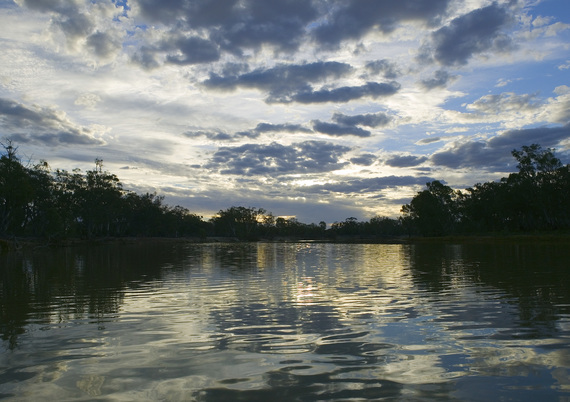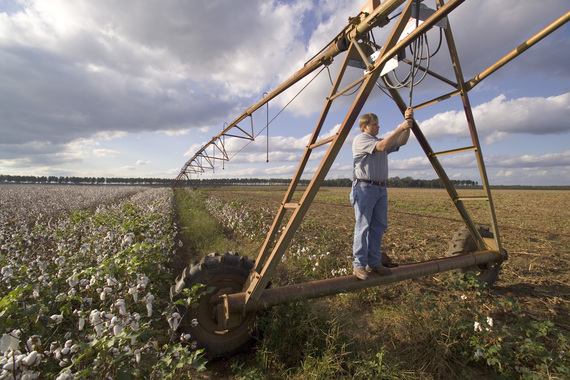
Mark R. Tercek is the president and CEO of the Nature Conservancy and author of Nature's Fortune. Follow Mark on Twitter @MarkTercek.
Many communities around the world are running out of water.
When demand outpaces supply, communities often turn to difficult and costly solutions, such as building reservoirs, importing water or constructing desalination plants.
But this week at the World Economic Forum in Davos, Switzerland, I'm pushing global leaders to consider a different solution--one that could significantly accelerate progress on addressing the root cause of water scarcity around the world.
Let's tap economic forces--the power of the market--to be smarter about how we use the water we already have.
By viewing water as a tradable asset, we can create water markets that encourage water users--such as cities, farms and companies--to be more efficient. The water saved can then be allocated for other uses.
With half the world's cities and three-fourths of irrigated farms experiencing regular water shortages, it's critical that we capitalize on the value created from conserving water.
My organization, the Nature Conservancy, is harnessing private capital through impact investing to do just that.
Impact investing--which allows investors to align their portfolios with their values by investing in initiatives that generate financial, societal and environmental outcomes--is emerging as a fresh source of funding for conservation projects.
With our impact investing unit, NatureVest, our global water experts and Australia team have created the world's first community water trust in Australia's Murray-Darling Basin. Through that program, we're working to raise $69 million of investor capital to help balance water use in the basin so there's enough for farmers, communities and nature.
Here's how it works: A community water trust acquires a portfolio of water rights and then collaborates with farmers, who buy and sell water allowances through a water rights trading system.
Through the trust, scientists help farmers execute water-saving strategies, and farmers who conserve water can sell their remaining rights back to the trust. The trust, in partnership with local conservation organizations, then uses some of that saved water to restore degraded freshwater ecosystems. It leases back the remainder to water users, ensuring Murray-Darling farmers get the water they need while at the same time generating financial returns for investors.
In the Murray-Darling Basin, we--along with local nonprofit Murray Darling Wetlands Working Group--plan to use water saved through the trust to restore more than 40,000 acres of wetlands during the next decade.
Not only will this wetland restoration benefit farmers and wildlife--such as frogs, fish, turtles and waterfowl--but it also will help preserve Aboriginal cultural and spiritual sites, many of which are located in the wetland areas.
This impact investment-driven solution to water shortages uses market-based strategies to encourage and reward smart water use. It generates environmental, financial and social benefits at a greater scale than philanthropy-funded efforts can while also supporting farmers and communities who rely on freshwater.
Impact investing can help conservation organizations scale up solutions to a variety of other problems, as well. For instance, NatureVest leverages private capital to accelerate sustainable grazing practices in Africa, prevent urban stormwater runoff in the U.S. and help island nations restructure debt in ways that help them adapt to climate change.
Embracing innovative solutions like these--and finding new sources of funding, such as impact capital--will be critical as global leaders leave Davos, ready to meet the world's challenges head on.
Images (top to bottom): Innovative market-based solutions are helping balance water use among farmers, communities and nature. © Ami Vitale; The Murray river in Victoria, Australia. © Mark Schapper; Community water trusts encourage farmers to save water. © Mark Godfrey/TNC


